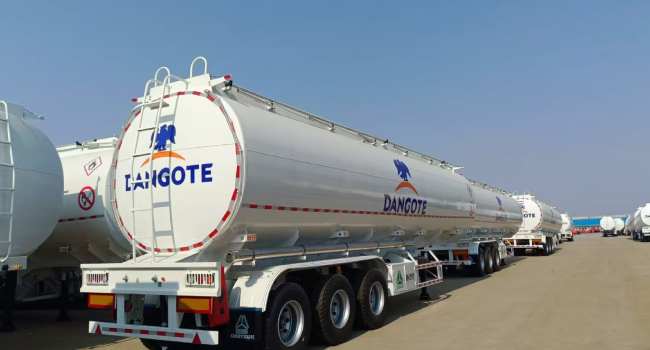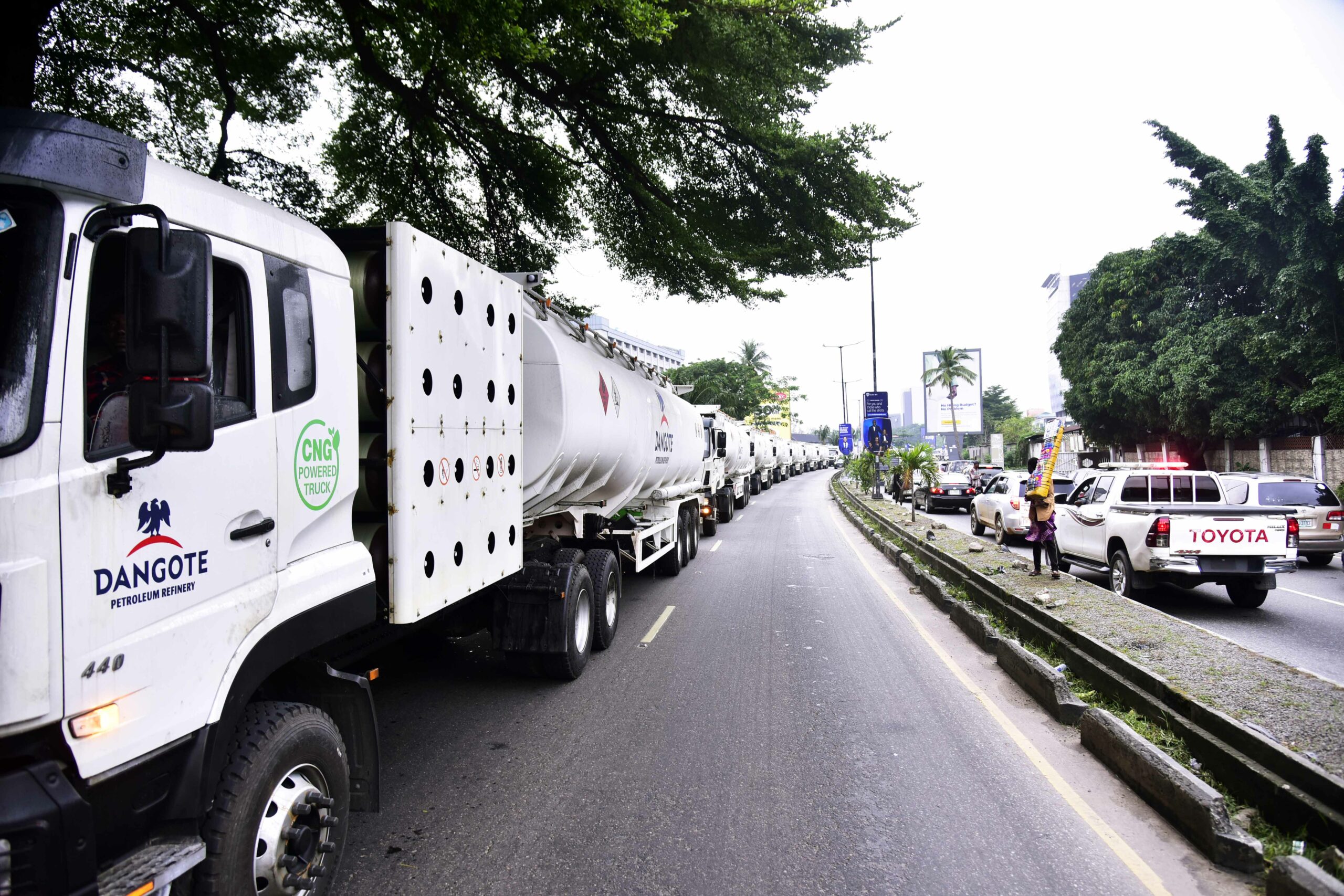
Nigeria’s $20 billion Dangote Petroleum Refinery has recorded significant success in its fuel distribution plan by receiving 1,000 Compressed Natural Gas (CNG)-powered trucks.
- Dangote Petroleum Refinery invested in 1,000 CNG-powered trucks to enhance fuel distribution in Nigeria.
- The refinery plans to deploy 4,000 CNG vehicles to reduce dependence on diesel logistics.
- CNG trucks are expected to lower distribution costs by 40% and reduce carbon emissions.
- The initiative aims to benefit 42 million MSMEs through reduced transportation and energy costs.
Anonymous sources at the Lekki-based refinery revealed to The Punch that the refinery will commence direct fuel delivery to marketers in Lagos, Ogun, and other South-West states using the trucks, pending the arrival of another 3,000 units.
According to the insiders, the trucks are coming in groups due to logistical issues caused by a shortage of ships.
Specifically, the refinery’s CNG endeavor was delayed temporarily last week due to Chinese logistical difficulties that impacted supply timelines.
Dangote unveiled an ambitious plan in June to deploy 4,000 CNG-powered vehicles across Nigeria, aimed at alleviating bottlenecks in the petroleum supply chain and reducing reliance on costly diesel-powered distribution.
As per the Punch’s report, all of the trucks have been paid for and are prepared for shipment to Nigeria.
Dangote Refinery 4000 CNG truck plan

Compared to typical diesel trucks, the CNG fleet is expected to reduce distribution costs by roughly 40% while also lowering carbon emissions.
This matches the refinery with worldwide clean energy adoption trends, establishing Nigeria as a potential leader in environmentally responsible energy logistics on the continent.
The Dangote Refinery, which is now operating at around 85% of its capacity of 650,000 barrels per day, sees the arrival of these trucks as more than merely an efficiency measure.
Dangote Refinery estimates that the initiative would reduce logistical costs by about ₦1.07 trillion yearly and increase corporate competitiveness across the country.
SEE ALSO: Crisis averted less than 24 hours before Dangote’s revolutionary fuel plans
One of the most significant impacts of the CNG fleet is its projected effect on Nigeria’s small and medium-sized businesses (SMEs).
The refinery anticipates that approximately 42 million micro, small, and medium-sized companies (MSMEs) would benefit from reduced energy and transportation expenses.
Beyond economics, the environmental benefits of deploying CNG-powered vehicles are also important for Nigeria’s future.
.












